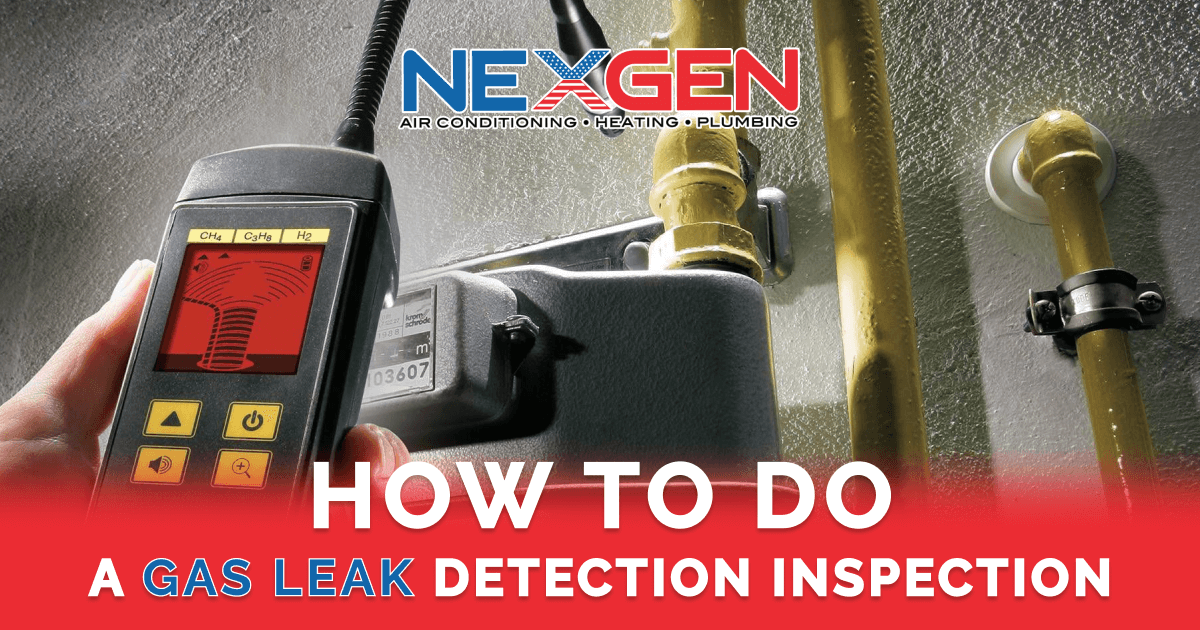Should You Call a Plumber to Fix a Gas Leak?

Most people associate plumbers with fixing water pipes, drains, sewer lines, and water-using appliances. A licensed plumber is also qualified to perform gas leak repair. Contact a plumbing contractor right away if you suspect a gas leak. Natural gas is flammable and a health hazard. You should call a plumber to fix a gas leak because they’re qualified to:
- Use special tools and equipment to detect gas leaks.
- Repair the damaged section of a gas pipe.
- Make adjustments that resolve or reduce the risk of leaks.
- Run gas lines from one place to another.
- Connect gas lines to appliances or fireplaces.
A Plumber Can Fix Gas Lines?
Calling a plumber might not be your first thought when you smell gas. Not every plumber can do the job. Don’t expect an apprentice or general contractor to be ready to handle the task. Check the plumber’s qualifications; they must have a California C-36 Plumbing Contractor license to work with gas lines. This means they are properly trained to fix a gas leak in your home. Working with a trained plumber will yield the following benefits:
- Safety: A licensed plumbing contractor has the tools and equipment to safely work near and fix a damaged gas line. They can quickly turn off the gas to eliminate the risk of carbon monoxide poisoning.
- Experience: Experience handling emergencies means the plumber can work calmly and methodically, and help keep everyone else calm until the problem is fixed. They’re also able to locate the source of the leak right away.
- Technical Expertise: While water and gas lines use some of the same materials, a certified plumber can determine the right pipes and materials needed. They’re also trained to correctly install gas line components, whether fixing a leak, retrofitting existing systems, or replacing old, weak, or corroded pipes.
- Installation Knowledge: Almost every property has gas appliances, but not everyone knows how to install them. A qualified technician can install a gas water heater, kitchen range, or fireplace while making sure any gas lines installed, moved, or modified are done so correctly.
- Knowledge of Rules and Codes: A licensed technician will be familiar with state and local building codes, so won’t commit any violations. Even if your jurisdiction doesn’t require it, you should still hire a technician who is properly trained in working safely around natural gas.
Signs You Need a Plumber to Fix a Gas Leak
A gas leak can come from a hole or break in the line, a damaged fitting, or a connection at an appliance. A defective appliance can leak natural gas as well. Signs of a leak include:
- Foul sulfur or rotten-egg odors.
- Hissing noises from an appliance, connection, or pipe.
- Dying house plants.
- Symptoms like nausea, dizziness, headache, fatigue, or confusion.
- An increase in gas usage/higher utility bill.
What to Do When There’s a Gas Leak
If you smell sulfur or rotten eggs, immediately turn off the gas meter. Don’t use any appliances, electronics, or devices in your home, or use matches or a lighter. Gas accumulated anywhere in your home can ignite and cause an explosion. Get everyone out of the house, including adults, children, and pets; then turn off the gas at the meter, if you can, and call an emergency plumber (or 911 and the gas company if the odor is particularly strong). Never risk trying to find and fix the problem yourself.
Any gas system issue from the meter into a home is the homeowner’s responsibility to fix. If the problem appears to be along the line before it reaches the meter, the gas company must repair it.
Call NexGen
Our technicians are trained and certified to work on gas lines, connections, and appliances. We also specialize in gas leak detection, using advanced equipment to verify a gas leak, where it is, and how much is leaking. Our team is prepared and equipped to quickly fix any leak and restore your safety. From minor adjustments to gas line replacement to 24/7 emergency service, NexGen has you covered.
Call 833-729-9735 or book an appointment online to request a plumber to fix your gas leak immediately.
How to Do a Gas Leak Detection Inspection

In the U.S., about half of all homes use natural gas for heating, cooking, and drying clothes, according to the Energy Industries Association. This energy source is safe if your appliances are properly installed and maintained. If not, there’s a risk of gas leaks that can lead to deadly explosions and carbon monoxide poisoning. It’s therefore very important to know the gas leak detection methods that can save your home and your life.
If you suspect a gas leak, here are ways to inspect your home for the source of such potential trouble:
Sniff Around for Rotten Eggs
You are essentially smelling for mercaptan, an additive gas companies use to make natural gas detectable. Otherwise, it does not have an odor of its own. The smell is similar to that of sulfur. As soon as you detect this odor, leave your home; then call 911 and contact your gas company or NexGen right away to have your gas line turned off. A technician will then find the source of the problem and fix it.
Inspect Your Stove or Range Top
When the burner in a gas stove turns on, the flame should be blue. An orange or red flame is an indication of a gas leak. It means gas is present and is consuming oxygen. This same gas is likely elsewhere and putting your entire family in danger.
Listen for Noises Near Your Gas Line
Whistling or hissing sounds mean there’s a serious gas leak. It’s important to note the source of the noise. If an air conditioner is hissing, a damaged valve, refrigerant line, or compressor may be to blame. Upon hearing evidence of a gas line leak, evacuate your home and call for help immediately.
Check Outdoors for Signs of a Leak
Outdoor gas lines can leak too. If so, you may not notice any issues in your home, except for gas-using appliances not working right. Check near gas lines for hissing sounds, bubbling water (if there’s a puddle, pond, creek, or river), or patches of dead grass or vegetation. Also, look for blowing dirt or leaves around a pipeline. If you see flames rising from the ground or something above the ground burning, that’s a sure sign of trouble.
The Soapy Water Test
Mix a teaspoon of dish detergent into a cup of water and apply the solution to where you think the leak may be. Gas leaks often occur at connection and junction points. If gas is escaping, then you will see bubbles in the liquid you place on the surface.
Use a Natural Gas Detector
Gas leak detectors are designed to find propane, natural gas, methane, and other combustible gases in the air. There are portable, extension, and plug-in types. Portable units can help find the source of a leak, while fixed devices can be installed in, for example, the kitchen for constant monitoring.
Know What Not to Do
No matter what, don’t go back into the building to open the doors and windows. If gas is present, smoking, operating a vehicle or power tools/equipment, or using lighters, outlets, switches, and even doorbells or phones (including cellular) can put you in danger. Elevators, appliances, garage door openers, lamps, and other electrical devices should not be used. Never try to restart the pilot light.
The only thing you should do is get outside and call 911 or your local gas utility/repair company; do not go back inside until a technician or inspector gives the all-clear.
Know the Symptoms of Exposure
If you’ve been exposed to carbon monoxide, you may experience difficulty breathing, chest pain, headache, eye or throat irritation, nausea, or reduced appetite. Changes in mood, such as depression or irritability, can occur as well. You may also notice ringing in your ears or frequent nosebleeds if carbon monoxide is present.
Call NexGen for Gas Leak Detection and Repair
Our technicians have the training, expertise, and equipment to detect and locate gas leaks. Available 24/7, we can quickly make repairs and stop the leak, often using non-invasive techniques. To request help from our leak detection and repair professionals, call 833-729-9735 now.










